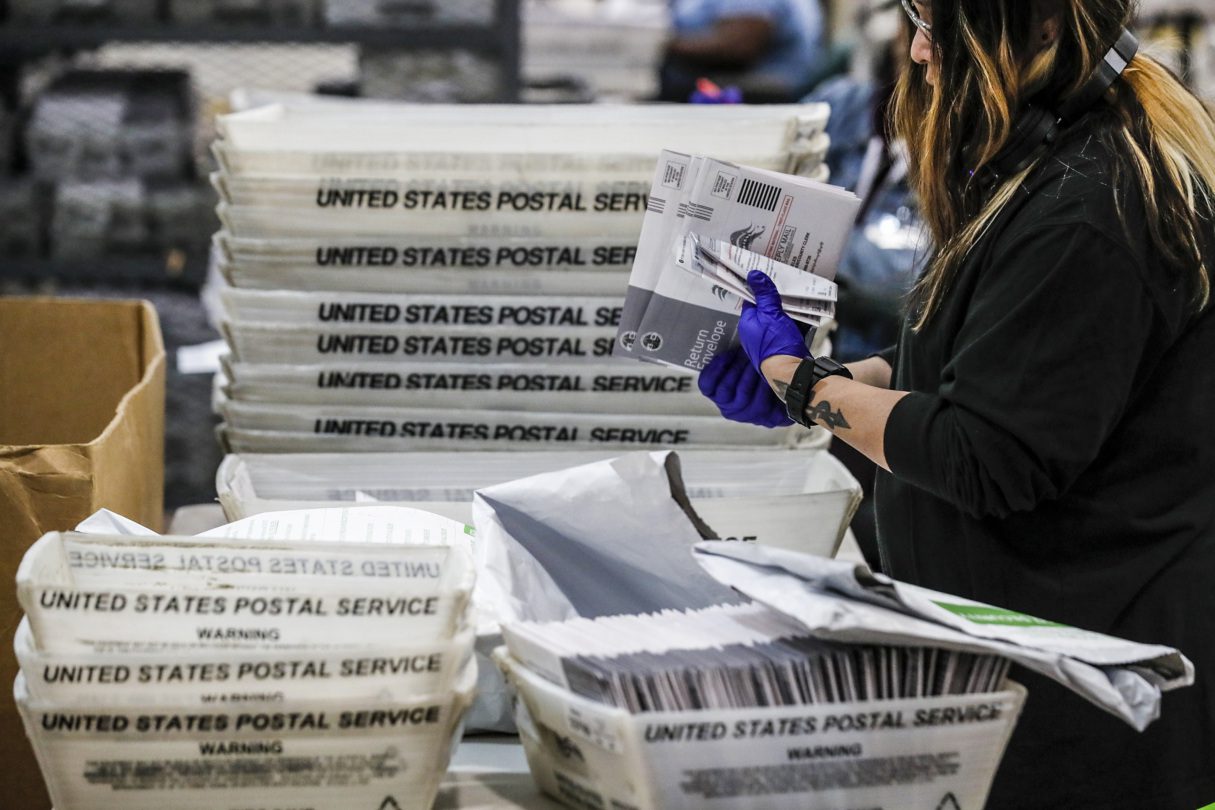How America Votes
New data shows that Americans trust voting early or by mail.

Published: 5.5.23
The Census Bureau published new survey data this week on who voted in last year’s midterm elections — and how they voted.
Among the findings: Almost half of all voters in the United States cast their ballots before Election Day. About a third chose to vote by mail. Both figures were significantly higher in 2022 than during the previous midterm election, in 2018.
Early and mail-in options make voting accessible and convenient to a greater number of people, which helps explain why both methods have become more popular in recent years.
At a time of pervasive lies about elections—lies that have driven a push for more restrictive voting laws in some states—it’s also important to remember that there are strict policies and procedures in place that ensure early and mail-in voting are safe and secure. State and local election officials don’t take chances with ballot security.
The Census Bureau’s data comes from a government survey that asks Americans about their voting and registration habits. (The same survey also shed light on why some people didn’t vote: The most common reason people gave was that they were too busy or had a work or school conflict.)
Overall, the survey reported that the voter registration rate was the highest for a midterm in 20 years. And voter turnout—those who actually cast a ballot—was the second-highest for a midterm in that span.
We know one big reason for that: Election Deniers were on the ballot in more than half the country, and voters understood the stakes. They showed up in last year’s election to defend free and fair elections for the future.
Sign up for the weekly newsletter here.
State of the States
In Michigan, Adams Township clerk Stephanie Scott, who was accused of improperly handling voting equipment after casting doubt on the 2020 election results, lost a recall election. Scott was banned from running elections in 2021 after she failed to conduct accuracy tests of the township’s voting equipment, refused to let a contractor perform routine maintenance, and stole parts of the machines. Scott has also spread baseless conspiracy theories about the accuracy of U.S. voting systems. Before Tuesday’s recall election, Scott’s challenger Suzy Roberts—a Republican who ran as an independent in an effort to unseat Scott—said that “the lying has to stop.”
In Wisconsin, Gov. Tony Evers named Joseph Czarnezki, a former Milwaukee County clerk, to the Wisconsin Elections Commission, the bipartisan agency that oversees the state’s elections. “I think it’s important that everyone who is eligible to vote in the state of Wisconsin has a chance to register to vote, cast a ballot and have that ballot counted,” Czarnezki told the Milwaukee Journal Sentinel in an interview. Czarnezki will replace Julie Glancey, who last week announced plans to step down. The commission is evenly split between Republicans and Democrats and has a range of responsibilities, including making sure election results are accurate.
In The News
- A jury convicted four leaders of the Proud Boys, including longtime chairman Enrique Tarrio, of seditious conspiracy on Thursday for their roles in the Jan. 6 attack on the Capitol. A fifth member of the group was found guilty of “assaulting, resisting, or impeding” law enforcement officers. All five were also found guilty of several other felonies including obstruction of an official proceeding.
- The Arizona Supreme Court on Thursday ordered lawyers for former gubernatorial candidate Kari Lake to pay a $2,000 fine for “unequivocally false” claims made in court about the 2022 election. The sanctions are the latest issued against Election Deniers who brought frivolous challenges after losing in the 2022 midterms.
- Justice Department special counsel Jack Smith is reportedly investigating a political action committee that used false claims of voter fraud to fundraise after the 2020 election. Investigators are looking into whether the committee knew the claims were false at the time, and whether the fundraising efforts were criminally fraudulent.